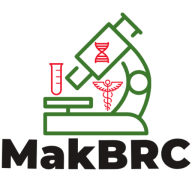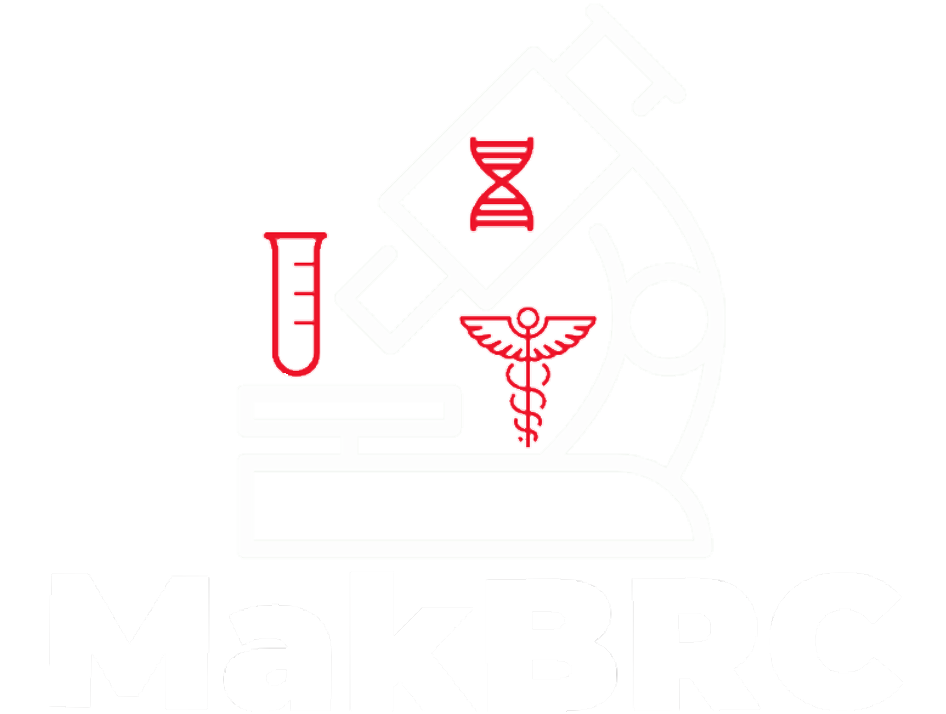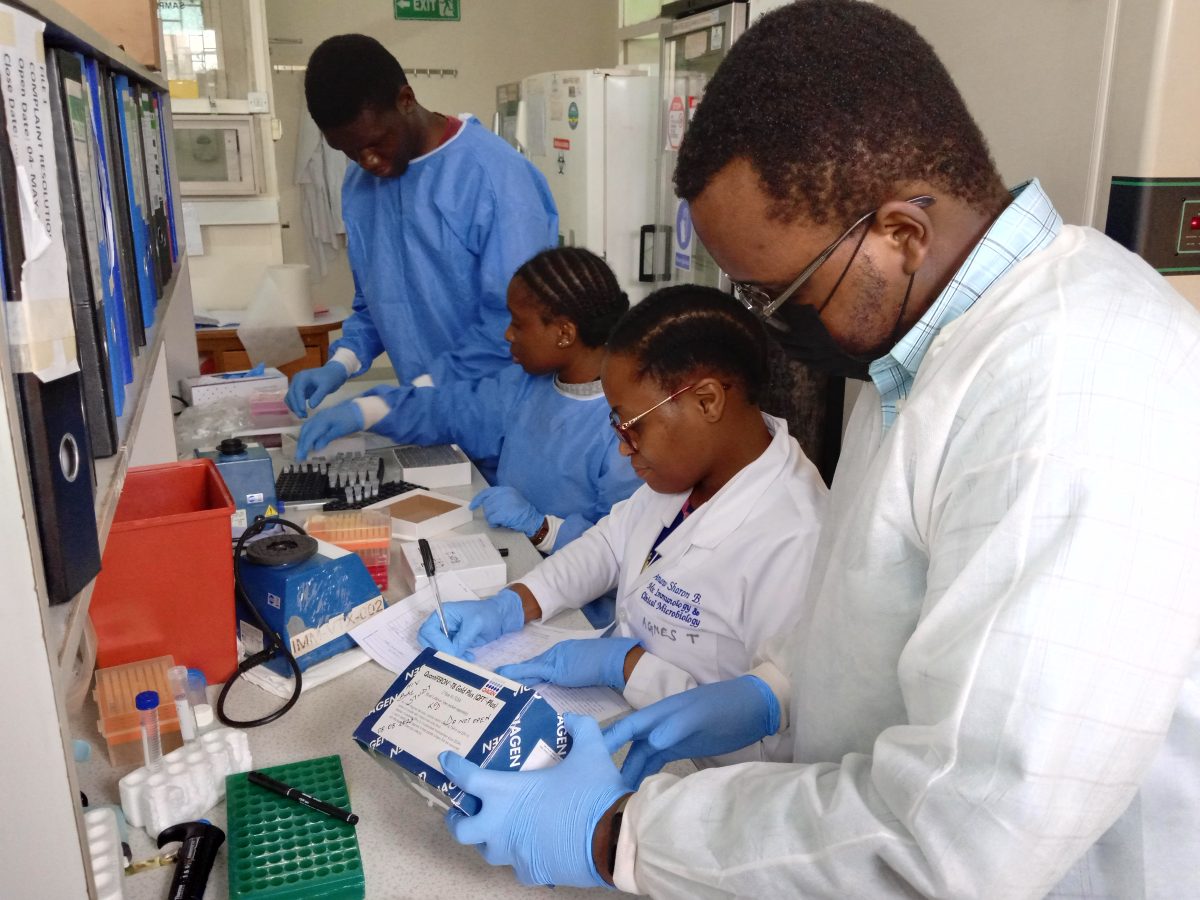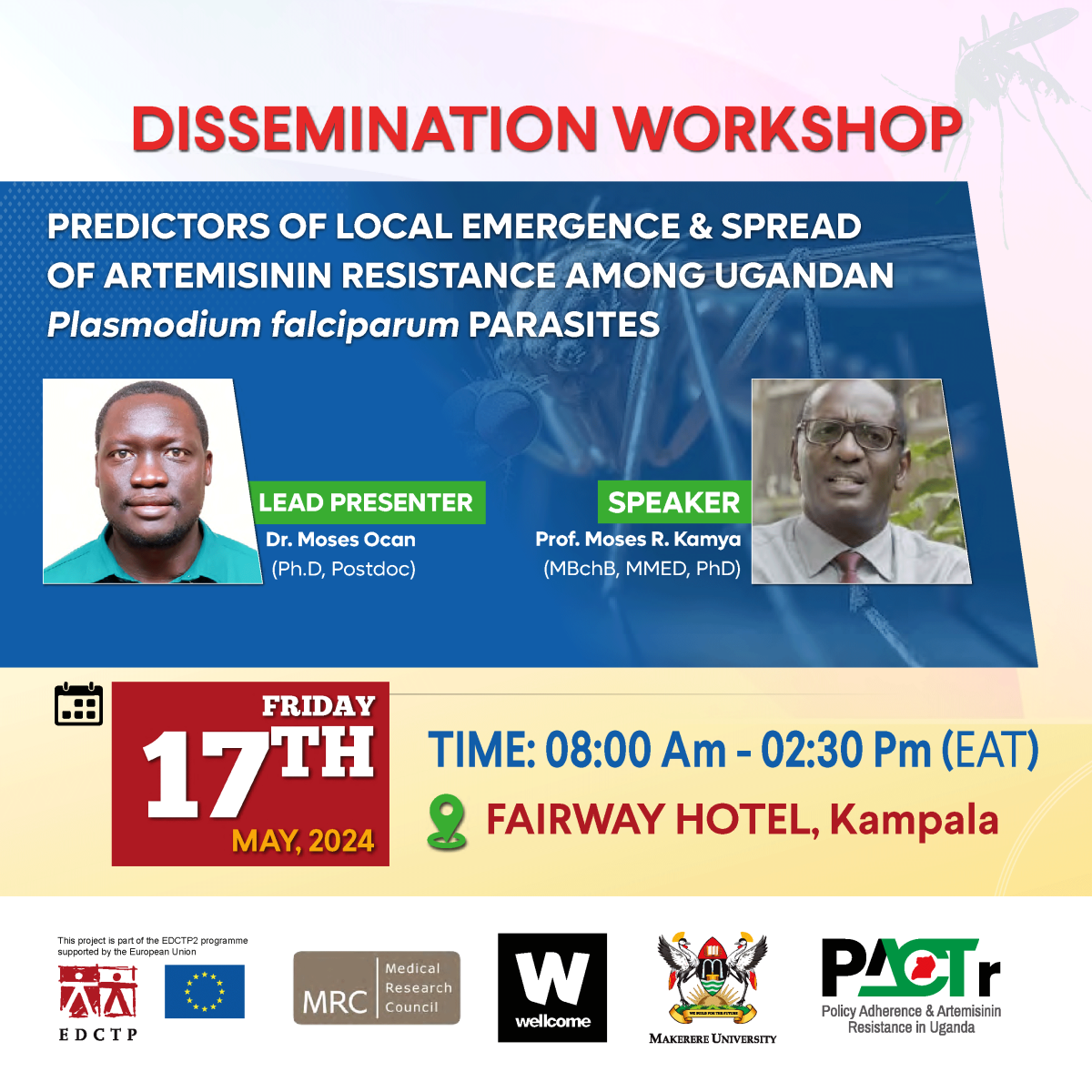Project acronym:
HIV-LUNG MICROBIOME STUDY
Project Duration:
1st November 2021 to 30th June 2024
Recipient:
Dr Alex Kayongo, Makerere University, Kampala, Uganda.
Funding acknowledgement:

This project has received funding from the EDCTP2 programme (TMA2020CDF-3194) supported by the European Union and Novartis Global Health Basel Switzerland.
Background: Chronic obstructive pulmonary disease (COPD) is increasing in prevalence among people living with HIV/AIDS (PLWHA) as widespread use of Antiretroviral Therapy (ART) has increased longevity in this population. In rural Ugandan ART clinics, we report COPD prevalence of 6.22%. Currently, it’s not fully known what drives chronic lung inflammation in PLWHA population despite being virologically suppressed on ART. Airway dysbiosis has been implicated as a driver of airway inflammation in COPD and HIV infection has been reportedly associated with significant changes in airway microbiome in several studies. In this study, we aimed at investigating airway microbiome-driven inflammation.
Study aims: We specifically aimed at: (1) establishing a relationship between airway microbiome and Th17/Treg cellular phenotypes among HIV-infected individuals with COPD; (2) investigating bacterial-mediated Th17 upregulation of pro-inflammatory genes among HIV individuals with COPD and (3) exploring the role of bacterial outer membrane vesicles (OMVs) in mediating microbiome-driven Th17 immune responses among HIV individuals.
Methods: In this study, we conducted a detailed airway microbiome-immune profiling of a Ugandan COPD cohort using high dimensional mass flow cytometry combined with 16S rRNA amplicon sequencing. We further interrogated the relationship between identified immune clusters and microbiome-derived outer membrane vesicles. We assembled a cohort of 160 individuals recruited from two large independent cohorts in rural Uganda. We collected 5mls of induced sputum for downstream microbiome analysis using 16S amplicon sequencing and high dimensional time of flight mass cytometry using a 30-marker panel targeting over 25 immune cell populations.
Results: We identify broad immune landscape profiles across a COPD population in rural Uganda. Interestingly, a reduction in microbiome richness and evenness significantly correlated with a high frequency of double negative T cells (thymocytes), naïve helper T cells, mucosal homing effector T, and Natural Killer cells. Using a confounder-aware algorithm for biomarker search, we summarize the effect size of the top airway microbiome signatures on immune phenotypes. Among the top signatures, Streptococcus spp significantly affected the proportions of Th17 and NKT immune cells. Enrichment with streptococcal spp was associated with increased Th17-like immune cells. On the contrary, depletion of streptococcal spp was associated with increased NKT cell response. In conclusion, the airway-microbiome immune crosstalk in a Ugandan COPD cohort was driven by Streptococcus, associated with Th17 and NKT cell immune responses.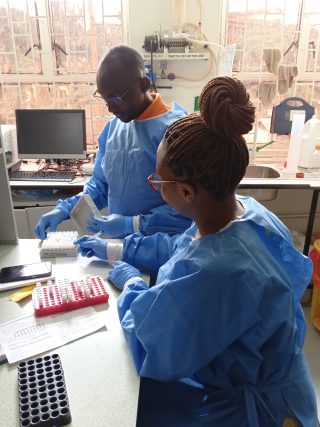
Further interrogation of induced sputum transcriptomic profile in relation to the airway 16SrRNA amplicon sequence data illuminated the relationship between the airway microbiome and the mucosal immune responses in a rural Ugandan HIV-COPD cohort. Pro-inflammatory gene signatures, ccl4, ccl3, ilr1, irak2, cxcl2, hivep2, ccl3l3, cxcl8, ccl4l2, rel, and cxcl9 enriched the airways of a COPD population and positively correlated with microbiome-derived outer membrane vesicles, a marker of live bacterial biomass. Depletion of keystone species or enrichment of specific pathobionts in the airways drove a pro-inflammatory gene signature expression, an effect possibly driven by microbiome-derived outer membrane vesicles (OMVs) signaling via TLRs to activate the NF-kB and chemokine signaling pathways.
Conclusions: : The COPD phenotype we observe in Africa is infection-driven NOT smoking-driven. Depletion of keystone species or enrichment of specific pathobionts in the airways drives a pro-inflammatory gene signature. This effect is possibly driven by microbiome-derived outer membrane vesicles (OMVs), signaling via TLRs to activate NF-kB and chemokine signaling pathways.Enrichment with streptococcal spp was associated with increased Th17-like immune cells. On the contrary, depletion of streptococcal spp was associated with increased NKT cell response. In conclusion, the airway-microbiome immune crosstalk in a Ugandan COPD cohort was driven by Streptococcus, associated with Th17 and NKT cell immune responses.
Outputs and achievements
- We established the airway microbiome-immune crosstalk Lab at Makerere University.
- We developed a novel airway microbiome-immune library.
- We trained one bioinformatician in metagenomics, transcriptomics and proteomics during the project.
- We trained one immunologist in CyTOF and OMV ELISA during the project
Implications
- The COPD phenotype we observe in Africa is infection-driven NOT smoking-driven.
- Immune pathways driving COPD are Toll-like receptor signalling, Nuclear factor kappa B and chemokine pathways
- We are now piloting the airway microbiome immune library’s utility in deciphering the airway microbiome crosstalk in other diseases such as TB.
Results dissemination
Through workshops, community outreaches and community advisory board meetings, we have successfully disseminated our findings to our primary stake holders ( participants) and policy makers. The COPD phenotype we observe in Africa is infection-driven NOT smoking-driven. More emphasis has to be put on the treatment of lung infections.
Socio-economic impact of the action, including its wider societal implications
We have improved access to COPD screening and treatment in rural Ugandan communities. There has been community sensitization and increased awareness about COPD and its risk factors in rural Ugandan communities.
Progress beyond the state of the art and expected potential impact
We have successfully established the airway microbiome-immune crosstalk laboratory/ working group at Makerere University. We are currently investigating how such microbial signatures impact airway mucosal immunity in the setting of HIV and COPD, utilizing a well-characterized cohort, we have built over the last 5 years. We have established a niche in the field of HIV-COPD mucosal immunobiology, testing novel chronic airway inflammation models as platforms to immune-phenotype airway microbiome with a goal of identifying novel immune-protective and inflammatory signatures using multi-omics approaches.
